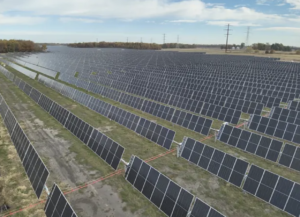In a letter addressed to Tennessee Valley Authority (TVA) CEO Bill Johnson, Kentucky Gov. Matthew G. Bevin said it “would be a huge mistake” to permanently shut down Paradise Unit 3—the last operating coal unit at the Paradise site in Muhlenburg County, Kentucky. According to the governor, “the impact on our economy and our region’s (and nation’s) long-term energy grid reliability, would be devastating.”
The letter, dated Jan. 4, noted that Bevin had “serious concerns” about the effect closure would have on plant employees and other workers who support and service the unit. He also mentioned the impact it would have on Kentucky coal miners, who supply the plant’s fuel.
The governor said he believes, based on conversations he has had with President Trump and senior members of his administration, including at the Environmental Protection Agency and Department of Energy, that utilities “can anticipate a more stable and practical regulatory environment for coal-fired power plants.”
Bevin referenced a study conducted by PJM that he said concludes that significant grid stability problems could result from widespread closure of coal plants in the event of severe weather combined with gas supply interruptions. He suggested grid resiliency and fuel security demand coal remain part of the country’s energy strategy.
TVA, as part of its commitment to expand the utility’s fuel diversity, added three gas-fired combined cycle units at the Paradise site. Construction began on the units in March 2015, and the plant began commercial operation in April 2017. POWER recognized the 1,100-MW Paradise Combined Cycle Plant as a Top Plant in 2017.
Yet, the transition to natural gas has been caused by more than just a desire for diversity; economics have played a major role in the coal-to-gas shift as well. In 2012, TVA built the 880-MW John Sevier combined cycle project, near Rogersville, Tennessee, to supplant four coal-fired generating units. The TVA also added three new combined cycle units at its Allen facility five miles southwest of downtown Memphis.
According to its website, the TVA has gone from relying on coal for 58% of its power in fiscal year (FY) 2007 to only 26% in FY 2018, and it expects that percentage to shrink to 22% by FY 2027. Yet, nuclear power has accounted for the majority of the power shift, increasing from 26% of the mix in FY 2007 to about 40% in FY 2018, while gas grew from 10% to 20%, respectively.
Nonetheless, Bevin asked Johnson to consider all ramifications and “elect to keep Paradise Unit 3 operational.” He wrote, “Kentucky and the entire TVA region need it to remain a viable part of our energy infrastructure.”
The TVA is currently in the process of developing its integrated resource plan, which is likely to result in decisions being made about the future of Paradise Unit 3, among other things.
—Aaron Larson is POWER’s executive editor (@AaronL_Power, @POWERmagazine).










